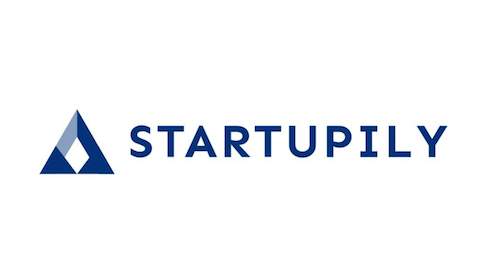Hosting a corporate event takes a lot of planning and organization. However, because these types of events are professional, you also have to be careful not to offend anyone or violate any company rules. From the dress attire to the entertainment, everything must be vetted carefully.
Furthermore, you need to have multiple backup plans in place if something falls through at the last minute. For example, what would you do if your entertainment pulled out days before the event?
We’re not trying to stress you out, we just want to make sure you’re set up for success. Keep reading for the top nine effective tips for planning business events.
1. Start Planning Early
You need to start planning your corporate event long in advance. This is not something to procrastinate. Planning an event early is beneficial for many reasons.
First, the sooner you start planning your event, the sooner you can start reserving essential services. This includes venues, entertainers, guest speakers, caterers, rental tables and chairs, and more.
Secondly, planning an event early gives you plenty of time to invite your guests. People need to know about business events long in advance so they can make room in their calendars. If you didn’t invite anyone until the week prior, your attendance would likely be limited.
Finally, these types of events take a lot of work outside of planning. Bringing your corporate event ideas to life may take a large number of people and several hours of work. You’ll need time to bring it all to fruition.
2. Establish Your Guest List
A major step in event planning is identifying who you want to be there. If it’s a corporate event, you’ll want all the key players in attendance. But what about low-level staff?
Additionally, most employees will enjoy the event more if they’re allowed to bring a guest. Make sure you specify how many guests each person is allowed to bring.
Some business events are mandatory, which makes it easy to predict how many people are going to show up. If not, however, make sure your guests RSVP so you know what to expect.
The number of guests who attend will dictate what you need in terms of venue size, catering, seating, and more.
3. Lock Down the Venue
Once you know how many people will be attending your corporate event, you can find the appropriate venue. If possible, you can try to save money by planning an event at your workplace. However, bringing your staff back to their place of work might not allow them to relax and have a good time.
If you’re going to rent a venue, reserve it a few months in advance to verify its availability. If you wait until the last minute, you might have trouble finding a venue that isn’t booked. This is especially important during holidays and other popular party times.
4. Find the Right Guest Speaker
Different types of events call for different types of guest speakers. For example, if you’re hosting a corporate event to motivate your sales team, you’ll want a successful business person as your guest speaker.
Conversely, if your event has specific topics that need to be covered, you can find niche speakers for each topic. For example, your event planning might include disabilities in the workplace. In this case, you can find more on disability speakers here.
5. Hire a Caterer
Most parties, including business events, are catered. People enjoy being fed, especially in party settings. This leads us to our next tip, finding the right caterer.
If your corporate event is somewhat small, you could come up with a list of your top three choices and allow your guests to vote. Otherwise, we recommend choosing a caterer that provides plenty of options. Sometimes, the best choice is a buffet-style catering service so people can pick and choose what they want.
Just make sure the caterer provides options for people with special diet restrictions. This includes dairy-free, gluten-free, plant-based, etc.
6. Choose the Entertainment
Depending on the type of corporate event you’re hosting, it might be appropriate to hire entertainment for the evening. Find an option that is appropriate for a work setting, yet engaging and fun. Popular options include:
- Live bands
- Stage magicians
- Hypnotists
- Performance arts
- Etc.
Vet each option carefully to make sure it won’t violate any corporate policies. You also want to avoid offending anyone.
7. Set the Dress Code
When planning an event for work, decide what type of setting you want to promote. For example, do you want people to relax and dress casually or come to the event as they would to work?
Some corporate events are black-tie events that require people to dress nicer than they would at work. These types of events are auctions, galas, fundraisers, etc.
8. Get Volunteers to Help
Pulling off your corporate event won’t be easy. You’re probably going to need help during each step of the process.
Get volunteers from work to help you plan the event. They can help you come up with themes, playlists, decor, entertainment, and more. You’ll also need help from people willing to set up and break down the event (unless you’ve hired that part out).
If you’re hosting the event at your workplace, you’ll want help cleaning up and getting everything back in order at the end of the night.
9. Send Out Invitation
Finally, it’s time to send out invitations to your corporate event. You can send out actual invitations by mail or keep everything digital. Remember to do this at least a few weeks before the event.
Additionally, if you need people to RSVP, make it simple for them. By-mail invitations should include a pre-paid RSVP card. Otherwise, they can do it by email on digital invitations.
Are You Planning a Big Corporate Event?
Planning business events is far from easy. However, if you put in the work and follow the tips listed above, it should be a great success. Just remember to get a head start to avoid unnecessary complications.
And if you’re looking for more business tips or event planning advice, look no further. Check out some of our other articles before you go to find more great content. Our blog was created to help business professionals like you.
Infographic created by FIRST
- Why Your Startup Should Start as It Means to Go On
- Empower Your Business with GridPanel Comprehensive Web Scraping Solutions
- Understanding the Role of Elastic Fibers in Modern Fabrics
- Cyber Defenders: A Look at the Global Cybersecurity Industry
- Elevate Your Business with Strategies from an Entrepreneur Author




